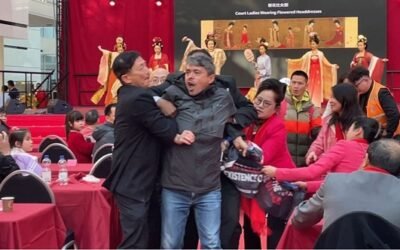Sentenced to ten years for praying and sharing a sermon: our exclusive series of testimonies from ethnic Kazakhs persecuted in China concludes.
by Serikzhan Bilash and Karima Abdrakhmova*
*Galman Kochiigit, Bekzat Maxutkan, Gulzhan Toktassyn, GalymRakizhan, and Tilek Niyazbek cooperated with the interviews and in preparing this series.
Article 6 of 6. Read article 1, article 2, article 3, article 4, and article 5.

Our team collected testimonies in East Kazakhstan from Kazakhs who had spent time in Xinjiang’s transformation through education camps and jails, and from relatives who try to get the help of human rights organizations for members of their families unjustly detained in China.
We conclude this series with the story of Yerulan Nurjamal, told to us by his cousin Jakypbek Tokash, who lives in Tavriya village, Ulan district, Oskemen city, East Kazakhstan.
It was not our longest interview, but we found it significant because Yerulan received a heavy jail sentence for what in most other countries in the world would be considered as part of the exercise of his religious liberty, part of his basic human rights.

Jakypbek Tokash told us that Yerulan Nurjamal was born on May 29, 1990, and was a resident of Shindi Road, building 3, 3rd section, Qarabura township, Yumin county (Qagantokay county), under the administration of Tacheng Prefecture, which is part of Ili Kazakh Autonomous Prefecture in Xinjiang.
Yerulan was arrested in the spring of 2016. He was accused of praying Namaz and of having shared a religious video with an Islamic sermon. He was sentenced to 10 years and taken to the prison of Altai city, Ili Kazakh Autonomous Prefecture, Xinjiang.
Since then, there has not been any information about him. His family does not even know whether he is still in Altai city or is serving his prison term elsewhere.
“It seems an obvious case, Jakypbek told Bitter Winter, of violations of fundamental human rights. I ask the Chinese authorities to release Yerulan from jail. But my voice alone will not be heard. International human rights organizations should help.”
As we have seen in this series, Jakypbek is not wrong. In other cases, protesting in Kazakhstan and internationally has led to ethnic Kazakhs detained in Xinjiang being released and expelled to Kazakhstan.
All their properties, the fruits of years of hard labor, may be confiscated. But at least they are free. It is for this reason that we continue to give voice to the voiceless, to collect and tell their stories.

*Karima Abdrakhmanova was born in 1962 in Taraz, Kazakhstan, and lives in Petropavlosk, in North Kazakhstan. She graduated in 1985 from Kyrgyz Pedagogical Women Institute and is a teacher of English language.

Serikzhan Bilash is a leading human rights activist in Kazakhstan. He was repeatedly harassed and persecuted for his campaigns exposing the horrific condition of ethnic Kazakhs and others detained in Xinjiang’s transformation through education camps.



